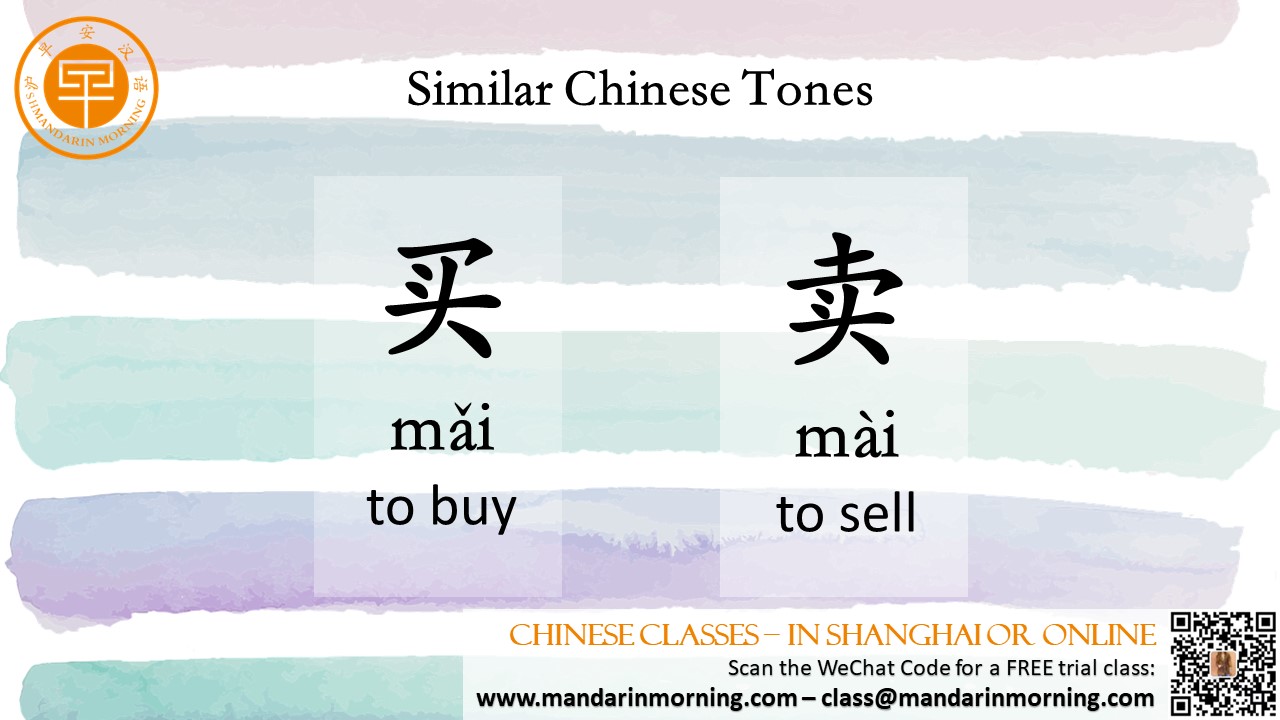【Learn Chinese】Don’t mix up the Tones of these Chinese Words! (Part 1) |
| If you’ve just started learning Chinese, you might’ve wondered, “Do I REALLY need to nail these tones down? Aren’t they kind of…optional?” Spoiler alert: they’re a big deal, and here’s why. Here are ten examples why you should pay a lot of attention to tones when you are learning Chinese.  Mom 妈 vs Horse 马 Let’s tackle the most classic mix-up: 妈 (mā; mom) and 马 (mǎ; horse). Both use the same “ma” sound, but the difference lies in their tones. For 妈 (mā; mom), it’s all about the first tone, which is high and steady. Now, 马 (mǎ; horse) trots in with the third tone. Start with your voice pitched low as if you’re about to start humming, and then let it sink a bit further, right down into your chest. That’s the essence of the third tone – the lowest of your voice range! Consider practicing these tonal differences as your vocal warm-up. Nailing the 妈 and 马 distinction is your gateway to tuning your ear to the symphony of Chinese homophones. Buy 买 vs Sell 卖 Here’s a pair you’ll want to get straight, especially if you’re navigating the bustling markets or discussing finances: buying and selling! In Chinese, the words for “to buy” (买; mǎi) and “to sell” (卖, mài) may sound quite similar, but a single mix-up could swing you between profit and loss! Just like 妈 and 马, 买 (mǎi; to buy) and 卖 (mài; to sell) hinge on the subtlety of tones. They share the same base sound, yet their meanings couldn’t be more different because of their tones. Imagine if you ended up buying (买) more shares instead of selling (卖) the ones you have during a market high! Grasping the sound difference between 买 (mǎi; to buy) and 卖 (mài; to sell) ensures you stay on the right side of your transactions, whether you’re trading stocks or haggling in a local market! Kiss 吻 vs Ask 问 Navigating social interactions in Chinese can swing between being a breeze and launching you into blush-worthy blunders. Case in point: the subtle yet crucial difference between 吻 (wěn; to kiss) and 问 (wèn; to ask). Picture this: you intend to say 问我 (wèn wǒ; ask me), but instead, you blurt out 吻我 (wěn wǒ; kiss me). Oops! That slip of the tongue might have you sending signals you didn’t mean to! Mastering this tone difference between 吻 (wěn) and 问 (wèn) is not just about avoiding a red face (or an unexpected smack on the cheek!); it’s about fine-tuning your communication skills, ensuring your true intentions get across correctly! Beautiful 美 vs Younger Sister 妹 Here we go again with Chinese homophones! This time it’s 美 (měi; beautiful) versus 妹 (mèi; younger sister). You might think it’s all about saying nice things or talking about family. But be careful! If you mix up the tones, you might call someone “beautiful” when you just want to talk about your “younger sister”! Ugly 丑 vs Smelly 臭 Now, we’re diving into a pair of words that you’d probably prefer to avoid in polite conversation: 丑 (chǒu; ugly/clown) and 臭 (chòu; smelly). Imagine the awkwardness if you wanted to say something smells bad (臭) and accidentally commented on someone’s looks (丑) instead! |